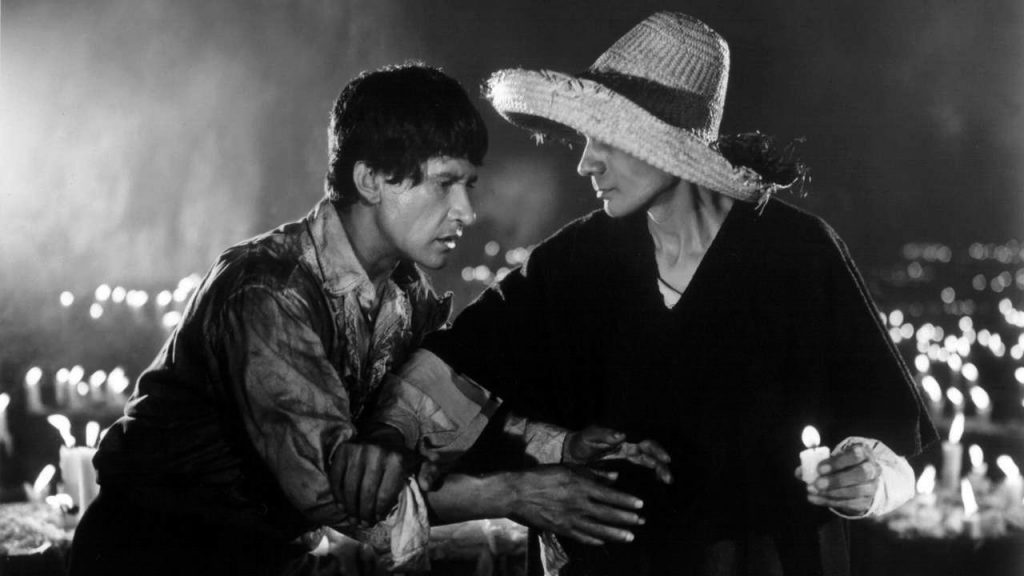We feature a lot of English language speaking films here on Quench and although they are often of high quality, we wanted to share with you some great cinema from other areas of the world: recommended to you by students of their native countries. Here is a short history of Mexican cinema; a film from Belgium and one from France.
We would love to continue this trend and continue to spread more awareness of foreign cinema. If you are an international student and want to share your favorite films from back home (or a UK resident with a love for more of these movies), email us at [email protected]
Mexican Cinema: More than just sombreros and cacti
By Luisa De la Concha Montes
It’s not news that most of the movies we know were made in the Western world. This was simply a historical consequence, as film as an art form emerged in Europe, and it took a while to propagate to other parts of the world. However, when it comes to the representation of non-Western countries, this can be quite troublesome. How are Western film-makers supposed to represent foreign cultures accurately if they don’t have enough knowledge about the countries their narratives are about? Sadly, most of the time they don’t even attempt to represent them in a fair light.
Let me introduce you to stereotypes, a common narrative trick that media-makers use when they have zero interest in learning the context of the culture they’re writing about. From Trump’s alienating discourse around immigration, to the xenophobic remarks made during Top Gear, stereotyping has affected the international image of Mexican culture for a long time. Because of this, it’s my honour to introduce you to Mexico’s cinematic comeback: A list of carefully crafted films that attempt to fight the stereotypes by showing this complex country in its true light.
Let’s start at the beginning, the golden age of Mexican cinema. Since the US and Europe were busy making films about war between 1933 and 1964, Mexico started making films about Latin America, becoming the commercial film centre of the continent during this time. My personal favourite of this era is Macario, a humorous movie that tells the story of a poor man whose only dream is to eat a whole turkey without having to share it with his family. When the man finally gets his hands on a turkey, he is ÔÇÿvisited’ by three very special characters, the Devil, God and Death, each of which want a bit of his precious turkey. In terms of production, it is a very simple film, but its main accomplishment is that it explores two main folkloric concepts that are deeply embedded to Mexican tradition: death and religion.

After the golden age, due to political instability and lack of funding, Mexican cinema went through a hiatus. However, during the 90s, talents like I├▒├írritu and Cuar├│n allowed Mexican cinema to make a glorious revival. Cuaron’s Y Tu Mam├í Tambi├®n, received worldwide acclaim, as it reexplored the concept of the ÔÇÿroad trip’ film by attaching to it a narrative about loss, gender roles, and family tensions. Similarly, I├▒arritu’s Amores Perros was well received among international audiences, as it brings up themes of inequality and violence whilst making use of a tryptic narrative that connects three distinct stories through a car crash in Mexico City.
In more recent years, the movie G├╝eros, directed by Alfonso Ruizpalacios has demonstrated that Mexican talent didn’t stop in the 90s. This movie, which also tackles topics such as inequality and political tensions, is truly a visual masterpiece. By shooting it entirely in black and white, Ruizpalacios managed to create a movie that feels like a dream. Finally, Gael Garcia (who actually initiated his career as the main actor in Y Tu Mam├í Tambi├®n), recently released his own film, Chicuarotes. This movie tells the story of two teenagers that, tired of living in the marginalised areas of Mexico City, decide to become criminals. In a manner that carefully threads between grim scenes, light-heartedness and comedy, this movie truly shows the contradictions of what it means to be Mexican.

All in all, these movies show how Mexican film-makers are worth your time, not only because they are have continuously demonstrated that they can create original and enticing narratives, that can speak to anyone in an emotional level, but also because by paying more attention to how Mexicans tell their stories, international audiences might finally agree that there’s a lot more to Mexico than just sombreros and cacti.
Le Tout Nouveau Testament
By Sai
Imagine a middle-aged man who is having his midlife crisis. His best times are over, nobody appreciates his work, his favourite son has left the house and he has internalised frustration that he lets out on everyone else. Now imagine this middle-aged man is God and he lives in an awful apartment in Brussels. This is the premise for Jaco Van Dormael’s The Brand New Testament.

The plot of this somehow dark comedy is that God’s youngest daughter, whom he had with a nature goddess, is annoyed at her father not only being abusive, but also miserable. And so she releases everyone’s death dates. Sends them out into the world. And now every human knows when they are going to die. She then escapes to earth, followed by her very angry father. God subsequently falls for all his own mean new laws, including murphy’s law and that the queue next to you will always progress faster than yours.
I love this movie because of its wit and its comedic depiction of quite dark topics, making it an unlikely wholesome movie in the end. For anyone with a sense of somewhat dark humour, but who still appreciates a good end, I definitely recommend giving this film a go.
Je Ne Suis Pas Un Homme Facile
By Sai
Ever feel like you want to watch something that will want to make you cry and laugh at the same time? Well you’re in luck! I Am Not An Easy Man will do just that. The story follows your typical sexist, macho man. Cat calling is his hobby, he doesn’t believe women are intelligent enough to do proper work and jokes about blowjobs at work. One day, whilst he’s walking down a road hollering at some women in shorts, he runs into a pole and wakes up in a world where gender roles are reversed. Completely.

It takes some time for him to realise, which ensures hilarity. Especially because his behaviour amuses the women of this world, who are used to treating men in a diminishing manner. His best friend tries his best to understand why the main character, played by Vincent Elbaz, is suddenly acting so strangely. This includes taking him shopping for skinny jeans which will make his figure look better and talking to him about taking care of his baby whilst his wife is out earning money.
Mixed in with this is an unlikely love story. The main character falls for a woman he used to harass in his previous life, and both of them come to terms with the idea that their world’s gender laws are not actually as natural as they are made out to be.
Again, this movie is genius. And whilst it is very, very funny, it did make me snort at the irony and at how a lot of aspects are quite relatable. I highly suggest giving it a watch in any case!


